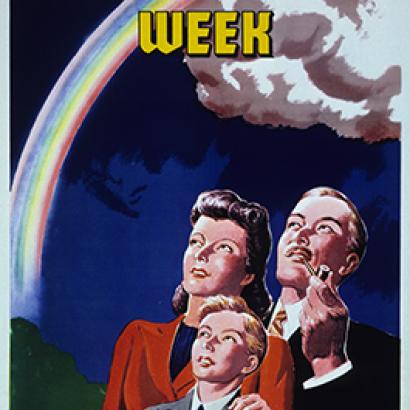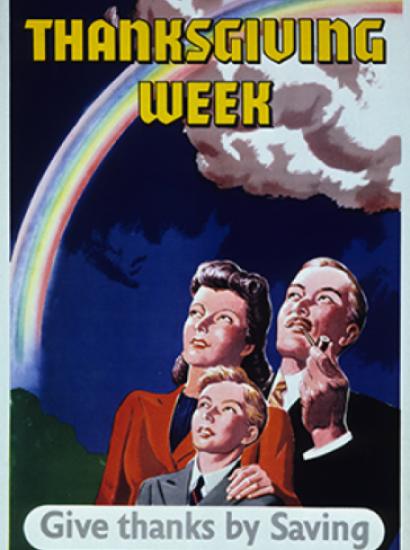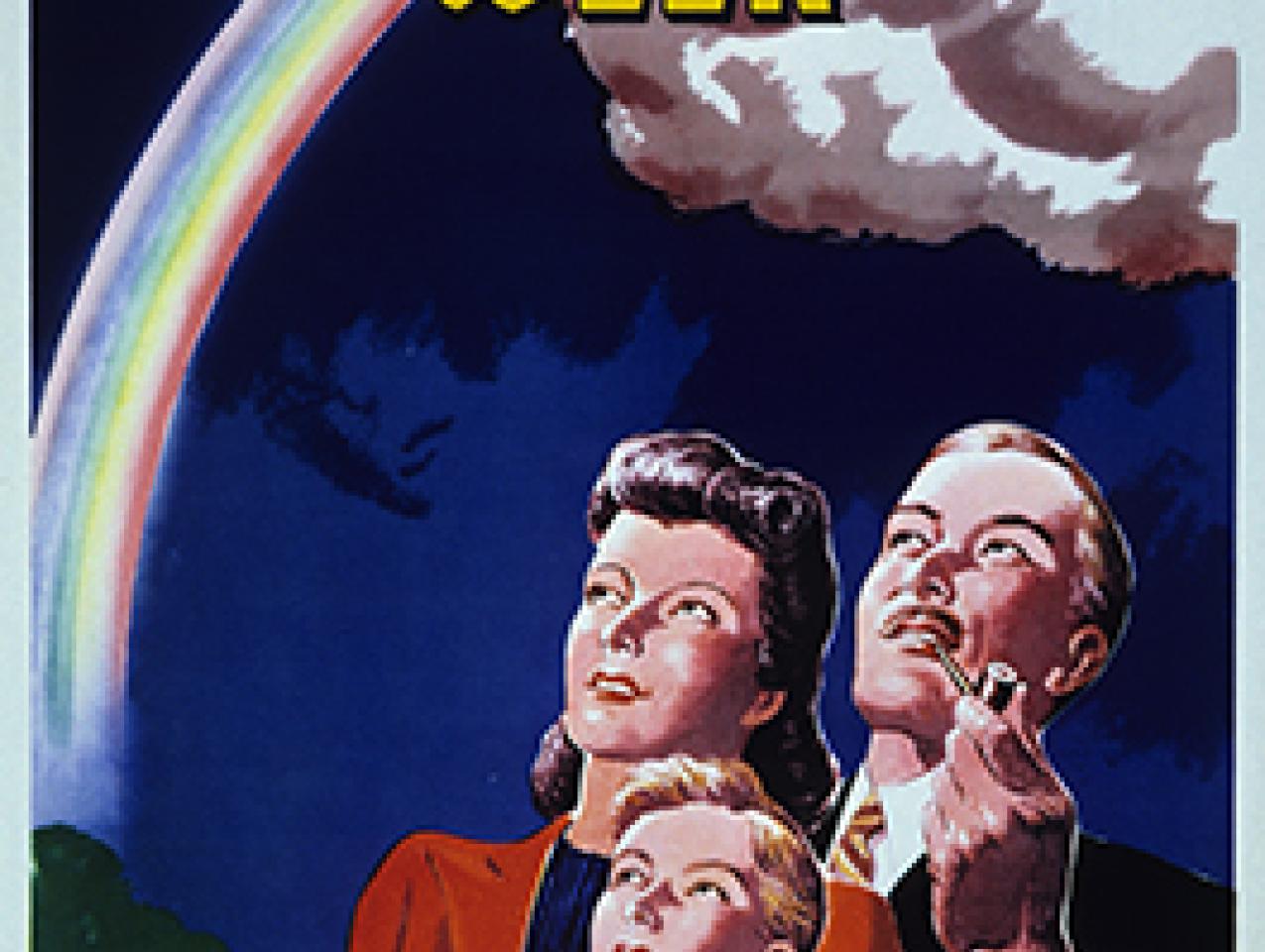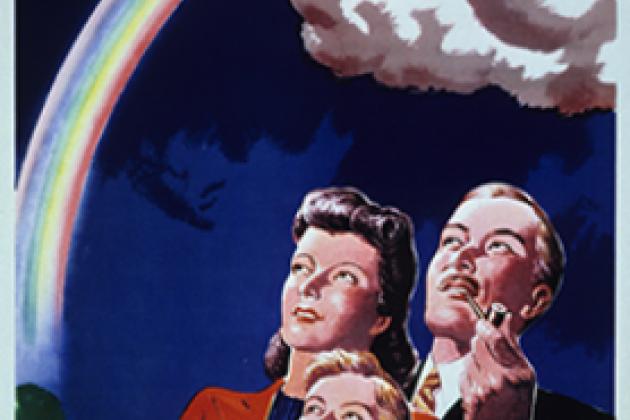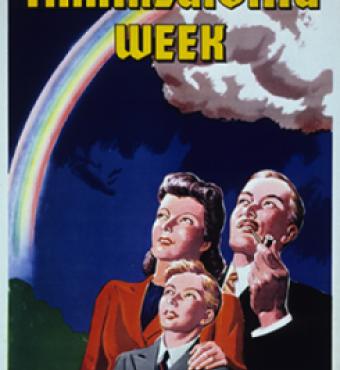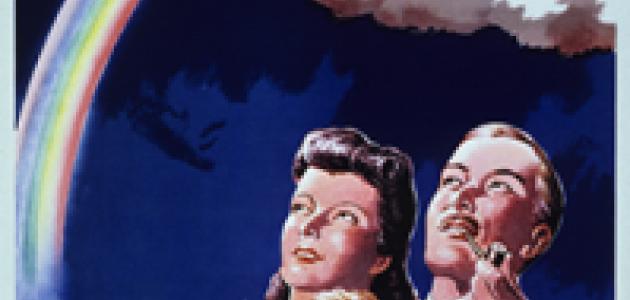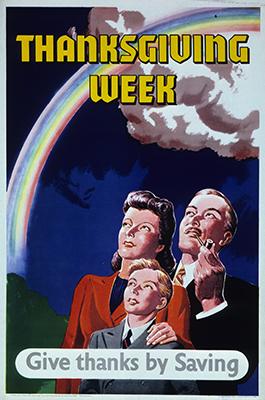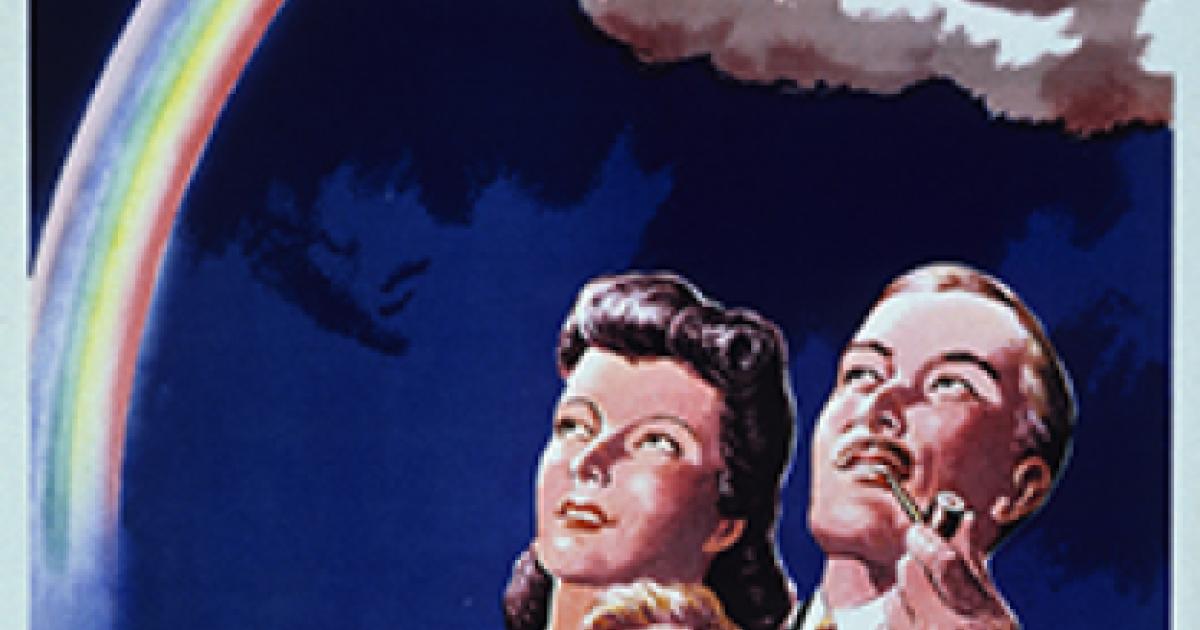- History
- Military
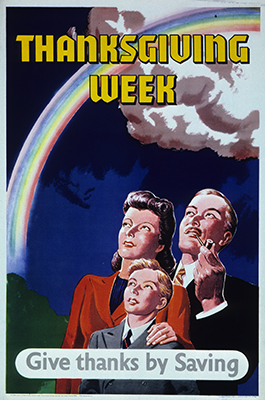
In describing the first Thanksgiving in 1621, the prominent Pilgrim farmer Edward Winslow wrote, “Our harvest being gotten in, our governor sent four men on fowling, that so we might after a special manner rejoice together…many of the Indians coming amongst us…by the goodness of God, we are so far from want that we often wish you partakers of our plenty.” About half of the small Pilgrim party had perished since landing at Plymouth the preceding year. Yet they were giving thanks to God and celebrating what meager provisions they had.
This communal tradition of giving thanks to God for goodness of life, despite its tribulations, continued decade after decade. In 1777, the Continental Congress proclaimed the first national Thanksgiving. A decade later, President Washington reiterated that Thanksgiving was to be celebrated as a holiday. While the idea of a national holiday gradually slipped into disuse, most of the states individually continued the tradition.
In the midst of the Civil War, as thousands were dying in battle after battle, President Lincoln resuscitated the national model. A few months after the Union Army victories at Gettysburg and Vicksburg in 1863, he issued a proclamation. “The year that is drawing toward its close, has been filled with the blessings of fruitful fields…of so extraordinary a nature that they cannot fail to penetrate and soften even the heart which is habitually insensible to the ever-watchful providence of Almighty God…It has seemed to me fit and proper that they should be solemnly, reverently, and gratefully acknowledged as with one heart and one voice by the whole American People…a Day of Thanksgiving and Praise to our beneficent Father who dwelleth in the Heavens. …And fervently implore the interposition of the Almighty Hand to heal the wounds of the nation, and to restore it…to the full enjoyment of peace, harmony, tranquility and Union.”
This amazing leader was both a realist—man’s heart “habitually insensible”—and a compassionate idealist—“heal the wounds of the nation.”
Today, we lack such enlightened political leadership. We are embroiled in an impeachment process that has driven out all matters of state and has riven apart our country along naked party lines. Politics is all about who gets what. If unchecked by a shared belief in the essence of the Constitution—that individual and collective freedom means the rights of the minority must not be transgressed by the majority—politics brings out the selfishness in man (his habitual insensibility) and encourages mean-spiritedness.
In a recent op-ed in The Atlantic, retired General Jim Mattis wrote, “Our politics are paralyzing the country. What is dangerous is not that people have serious differences. It is the tone—the snarl, the scorn, the lacerating despair…Declining trust—in government, in one another—is hampering our ability to confront the country’s problems.”
This “scornful tone” is most on display in the Internet. For instance, read the reader postings below any political story run in a major newspaper like The Washington Post. Tribalism is replacing thoughtful reason with unchecked emotion. We should be mindful of the historian Arnold Toynbee’s warning, “Great civilizations are not murdered. They commit suicide.” In his view, civilizations decay when they lose moral fiber and the cultural elites become parasites, employing government to advance their self-interests.
We as a nation have so much to be grateful for. Here at home, our economy is thriving and the job market is robust, leading to improved standards of living. There has been no major attack upon our beloved country since 9/11. Over the course of the past two decades, numerous policy mistakes in geopolitics were made. But al-Qaeda and its offshoot ISIS were gradually shattered and today hold no significant territory. They are on the defense. True, we will have to fight this scourge until that warped jihadist ideology runs its course, but the military costs and our casualties have dramatically lessened.
On Thanksgiving we should thank our Creator and treat our fellow citizens with respect. As Lincoln expressed it, “set apart a day…acknowledged with one heart and one voice by the whole American people… and fervently implore (the restoration) of peace, harmony, tranquility, and union.”







